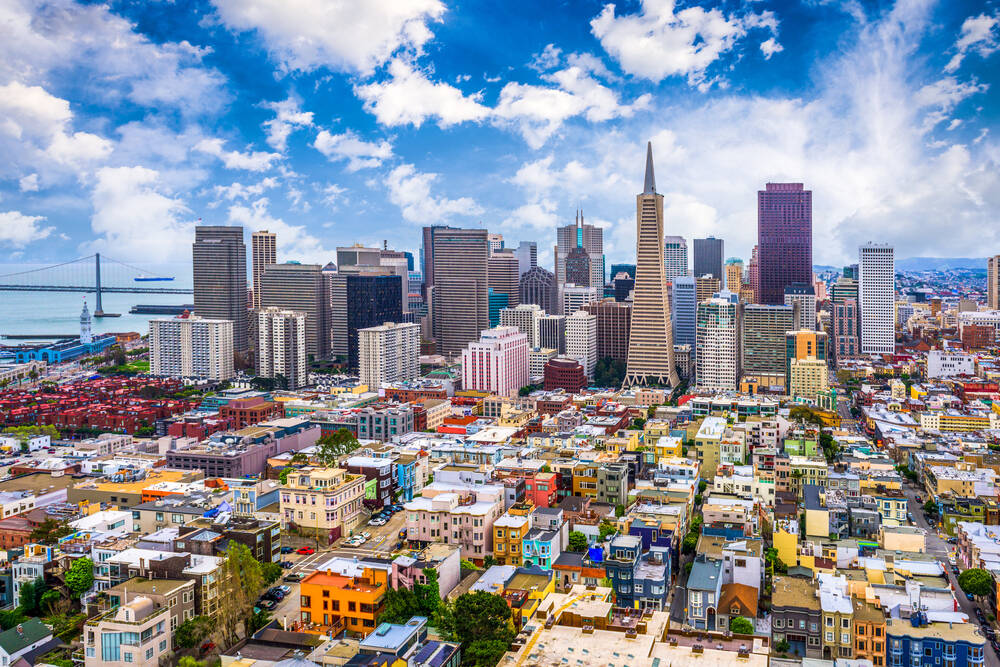SF Cops Got Warrant-free OK To Watch Protest Via Private Security Cameras

San Francisco cops earlier this year obtained permission to access 450 surveillance cameras belonging to private businesses to live monitor protests expected following the killing of Tyre Nichols, it emerged today.
That permission was sought under a controversial surveillance rule approved last fall in the US city. The temporary 15-month policy allows the police department to use privately owned surveillance cameras and camera networks to conduct investigations as well as to live monitor "significant events with public safety concerns" and ongoing misdemeanor and felony violations.
Police must get permission from the cameras' owners, though crucially they don't need to obtain a warrant. While businesses did grant officers live access to their surveillance cameras ahead of an anticipated march, the police said it didn't use the real-time feeds in the end.
"On January 27, 2023, the San Francisco Police Department submitted a live-monitoring request form, which was approved," the force told us today in a statement. "However, at no time did we use live-monitoring on that date during anticipated civil unrest surrounding the death of Tyre Nichols."
Protests in the city, sparked by the brutal police killing of Tyre Nichols in Memphis, were ultimately peaceful, which may well explain why the plod wanted live camera access – in case violence erupted – and then didn't use the feeds, as nothing untoward happened.
The camera ordinance, we note, prohibits San Francisco officers "from accessing, requesting, or monitoring any surveillance camera live feed during First Amendment activities unless there are exigent circumstances or for placement of police personnel due to crowd sizes or other issues creating imminent public safety hazards."
Campaigners are concerned that the cops reached for real-time video footage as people prepared to use their constitutional right to protest. The EFF brought the plod's planned use of the private cameras to light after obtaining revealing email correspondence between an SFPD commander and the Union Square Alliance CEO, all via a public records request.
Union Square is a shopping and tourist hot spot in the California city's downtown area. Given the way it's been hit by previous protests, waves of looting and theft, stores moving out, and a slow return-to-the-office by white-collar workers, we're not surprised an alliance of Union Square businesses allowed real-time access to their security cameras.
- San Francisco cops can use private cameras to live-monitor 'significant events'
- US police have run nearly 1M Clearview AI searches, says founder
- San Francisco politicians to vote on policy endorsing lethal force for robots
- US Supreme Court asked if cops can plant spy cams around homes
The messages show Commander Julian Ng requesting surveillance camera live monitoring [PDF] on January 27, and alliance boss Marisa Rodriguez confirming that the business group approved the request "in the interest of protecting the safety of the members of the public [PDF]."
"Similar historical events have prompted large scale riots and looting across the nation," the documents noted. "There are demonstrations already planned within the Union Square footprint (during high commute hours) and the use of live monitoring will allow SFPD to prevent potential felony vandalism and crimes that are generally associated with civil unrest as seen in previous events."
EFF and the ACLU of Northern California have already sued San Francisco for using this same camera network to surveil protests related to George Floyd's murder in 2020.
"The SFPD's continued push for live access to business district camera networks creates a dangerous precedent that puts all people participating in peaceful protest at risk of surveillance," the digital rights group said this week. ®
From Chip War To Cloud War: The Next Frontier In Global Tech Competition
The global chip war, characterized by intense competition among nations and corporations for supremacy in semiconductor ... Read more
The High Stakes Of Tech Regulation: Security Risks And Market Dynamics
The influence of tech giants in the global economy continues to grow, raising crucial questions about how to balance sec... Read more
The Tyranny Of Instagram Interiors: Why It's Time To Break Free From Algorithm-Driven Aesthetics
Instagram has become a dominant force in shaping interior design trends, offering a seemingly endless stream of inspirat... Read more
The Data Crunch In AI: Strategies For Sustainability
Exploring solutions to the imminent exhaustion of internet data for AI training.As the artificial intelligence (AI) indu... Read more
Google Abandons Four-Year Effort To Remove Cookies From Chrome Browser
After four years of dedicated effort, Google has decided to abandon its plan to remove third-party cookies from its Chro... Read more
LinkedIn Embraces AI And Gamification To Drive User Engagement And Revenue
In an effort to tackle slowing revenue growth and enhance user engagement, LinkedIn is turning to artificial intelligenc... Read more

